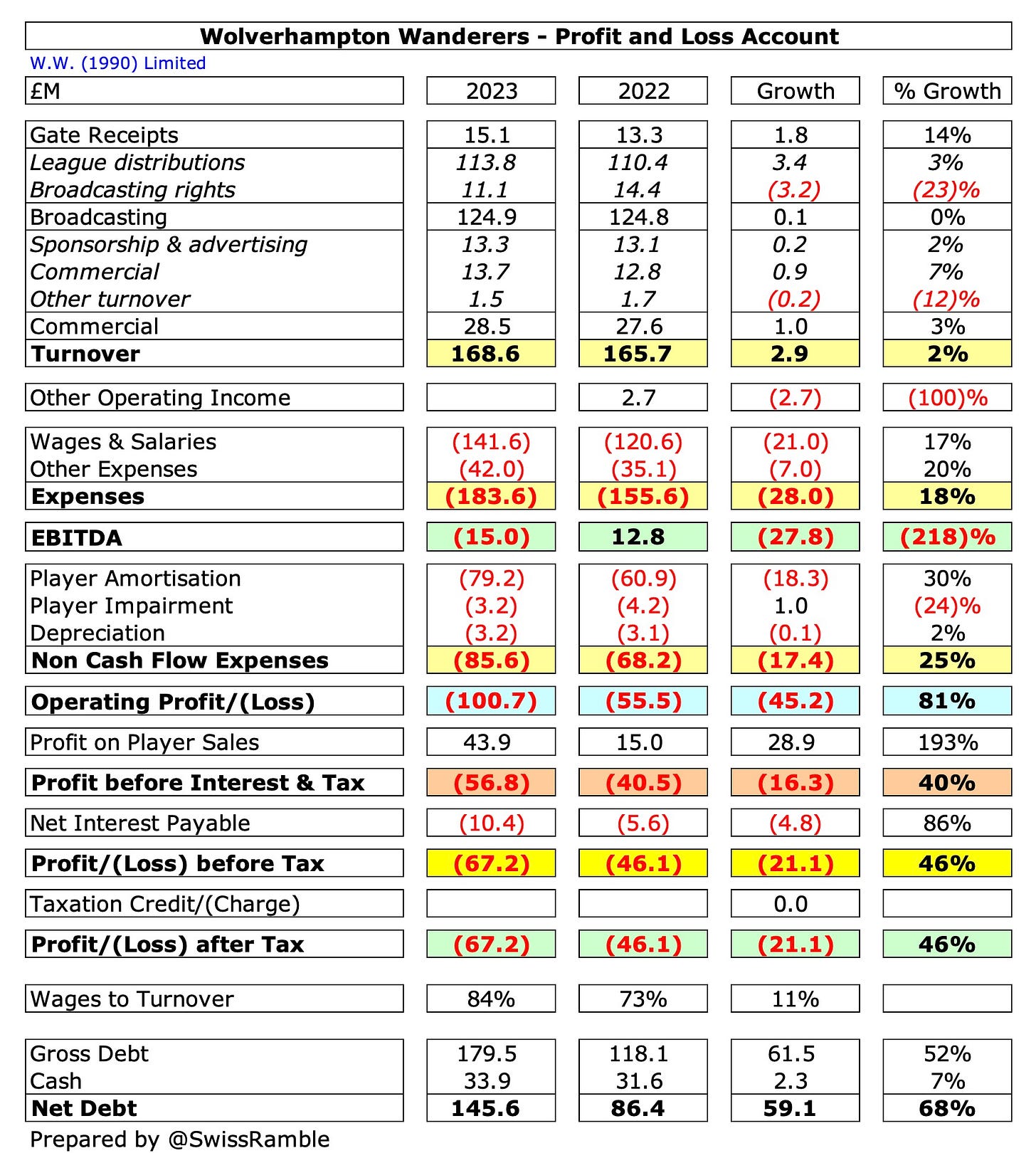Wolverhampton Wanderers’ 2022/23 financial results covered a season when they finished 13th in the Premier League. The club described this as “a more challenging campaign compared with previous years”, as there was a mid-season change in management, after head coach Bruno Lage was dismissed in October.
Steve Davis stepped in on a caretaker basis, before being replaced by Julen Lopetegui the following month. However, the experienced Spaniard left before the start of this season, citing the club’s financial challenges, when he was succeeded by Gary O’Neil.
Even if last season’s performance was a little disappointing, Wolves did end up comfortably securing their sixth consecutive season in the top flight since promotion in 2018.
Profit/(Loss) 2022/23
Wolves’ pre-tax loss widened from £46m to £67m, despite revenue rising £3m (2%) from £166m to £169m and profit from player sales nearly tripling from £15m to £44m.
However, operating expenses surged £45m (20%) from £224m to £265m, while net interest payable almost doubled from £5.6m to £10.4m. In addition, there was no repeat of the previous year’s £2.7m other operating income.
There was hardly any change in Wolves’ revenue, though all three streams showed small increases. Gate receipts grew £1.8m (14%) from £13.3m to £15.1m, while commercial rose £1m (3%) from £28m to £29m. Broadcasting was very slightly higher at £125m.
Significant investment in the squad led to increases in both wages, up £21m (17%) from £121m to £142m, and player amortisation, up £18m (30%) from £61m to £79m. Other expenses also rose £7m (20%) from £35m to £42m.
Wolves’ £67m pre-tax loss is obviously not great, but it is by no means the worst financial result in the Premier League, as even larger losses have been reported already for 2022/23 by Aston Villa £117m, Southampton £87m and Newcastle United £73m.
Keep reading with a 7-day free trial
Subscribe to The Swiss Ramble to keep reading this post and get 7 days of free access to the full post archives.






